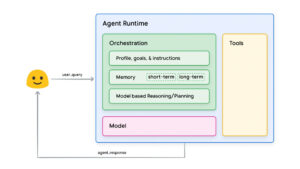Hume AI, a leading startup in emotionally intelligent voice technology, has launched Voice Control, a groundbreaking feature that enables developers and users to craft custom AI voices by adjusting vocal traits with precision—no coding, AI prompt engineering, or sound design expertise required.
Building on a Strong Foundation
Voice Control builds upon the success of Hume’s Empathic Voice Interface 2 (EVI 2), which introduced advanced capabilities in naturalness, emotional adaptability, and customization. Both EVI 2 and Voice Control steer clear of the ethical and practical challenges tied to voice cloning, a practice Hume CEO Alan Cowen has openly criticized.
Instead, Hume prioritizes empowering users to create unique, expressive voices tailored to specific needs, such as customer service chatbots, digital assistants, tutors, accessibility tools, and more.
Customizing Voices Across 10 Dimensions
Voice Control moves beyond traditional preset AI voices by enabling real-time customization of voices along 10 distinct dimensions, including:
- Masculine/Feminine: The perceived gender of the voice.
- Assertiveness: A spectrum from timid to bold.
- Buoyancy: Vocal density, from deflated to buoyant.
- Confidence: Ranging from shy to assured.
- Enthusiasm: Levels of excitement, from calm to enthusiastic.
- Nasality: Openness of sound, from clear to nasal.
- Relaxedness: Stress levels, from tense to relaxed.
- Smoothness: Vocal texture, from smooth to staccato.
- Tepidity: Energy levels, from tepid to vigorous.
- Tightness: Breathiness, from tight to airy.
These attributes are adjustable via an intuitive, slider-based interface in Hume’s virtual playground, accessible with a free user sign-up.
Tackling Industry Challenges
Voice Control addresses key pain points in voice AI. Preset voices often fail to meet specific brand or application needs, while voice cloning introduces ethical risks. Hume’s emphasis on voice customization aligns with its mission to create emotionally aware AI voice solutions.
The launch follows the release of EVI 2 in September 2024, which reduced latency by 40%, cut costs by 30%, and introduced enhanced voice modulation features. EVI 2 offered a safer alternative to voice cloning while supporting dynamic conversational adjustments and sub-second response times.
Sliders Over Text Prompts
Hume’s development approach leverages its proprietary model, informed by cross-cultural voice recordings and emotional survey data. This research-driven foundation allows the company to design tools that reflect human perceptual nuances, such as assertiveness or buoyancy, without oversimplifying them into text-based commands.
The slider-based design of Voice Control ensures ease of use, making it accessible to developers seeking precise and reproducible voice outputs.
Applications and Future Plans
Voice Control, currently in beta, integrates seamlessly with EVI, enabling applications in real-time customer service bots, virtual assistants, and more. Developers can choose a base voice, tweak its traits, and preview results instantly, ensuring stability across sessions.
Looking ahead, Hume plans to expand Voice Control by introducing more modifiable dimensions, refining voice quality under extreme adjustments, and increasing the variety of base voices.
Competing in the Voice AI Market
Hume’s focus on emotional intelligence and voice customization differentiates it from major competitors like OpenAI’s Advanced Voice Mode and ElevenLabs, which emphasize pre-set voice libraries.
With Voice Control, Hume solidifies its leadership in voice AI innovation, offering tools that prioritize flexibility, emotional nuance, and adaptability. Developers can explore Voice Control now via Hume’s platform, marking a new milestone in the evolution of AI-driven voice solutions.


















































































































Validate your login
Sign In
Create New Account